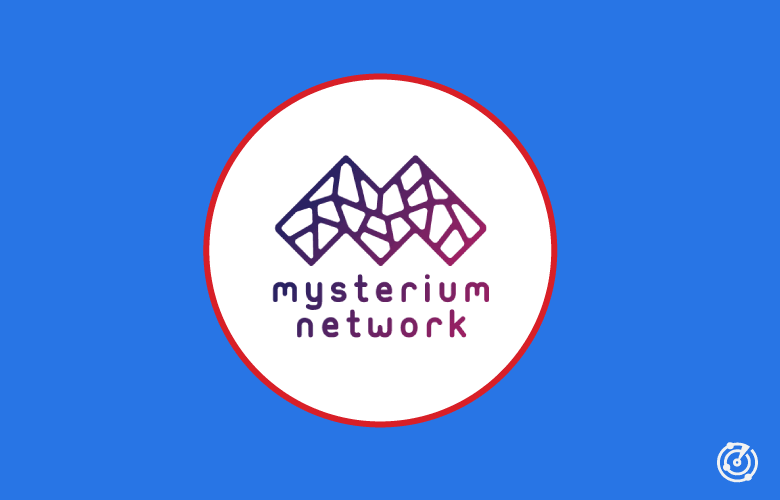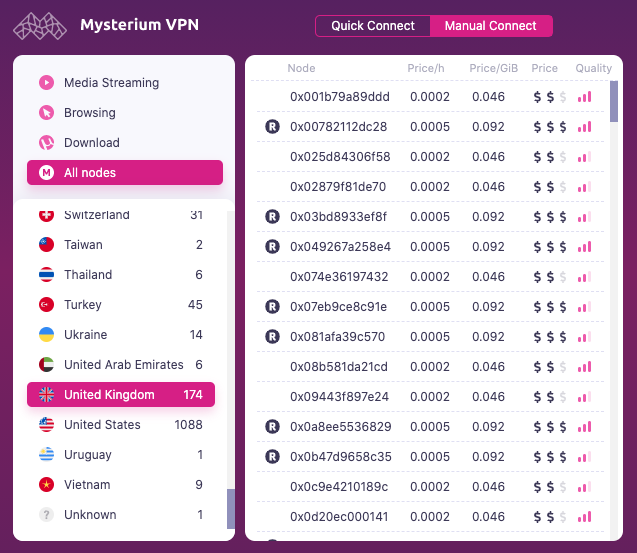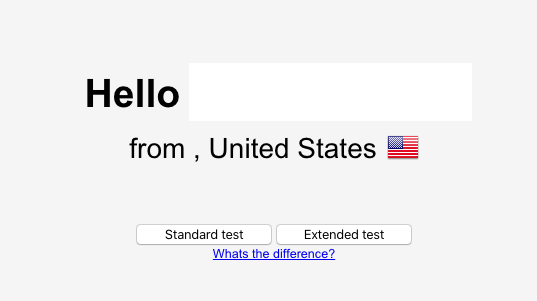August 20, 2021
Is Crypto the Future of Money? Bitcoin Outlook
How many dollars do you have in your wallet? What about coins? If you’re like me, you have to run [...]

WHAT’S IN THIS REVIEW?
Disclaimer: Partnerships & affiliate links help us create better content. Learn how.
As Web 3.0 projects go, a decentralized VPN (dVPN) protocol and ecosystem makes a lot of sense. For example, Mysterium VPN has no ability to collect or store user logs, and you don’t need to hand over any personal information during sign-up.
It was named in a Bloomberg report released mid-2021, which looked at “obscure apps” that had been used to avoid detection in Myanmar following a government-enforced communications blackout, hinting at its potential to provide lifesaving anonymity if all goes well.
To get the scoop, we’ve taken a look at what the dVPN currently has to offer, as it’s still in the beta stages of development. Keep reading to learn how it stacks up to traditional VPN services on the market today.
Mysterium Network is an open-source ecosystem of protocols, tools, and online infrastructure created to “liberate the web.” In practice, developers are attempting to build a “censorship-resistant infrastructure” for the next generation of web applications, with the VPN being the first of many to use the ecosystem.
Their blockchain-based approach has been successful so far, as they have over 100,000 active users and 3,800+ nodes worldwide. It claims to be the “first decentralized VPN of its kind,” along with the likes of Orchid and Sentinel.
The peer-to-peer decentralized virtual private network (dVPN) uses a native cryptocurrency token called MYST to handle payments.
For one thing, it’s decentralized, as they explain:
“Traditional VPNs run on centralized infrastructure, which means one point of failure. At Mysterium, we’re decentralized; there is no central point of control or anywhere to store your logs. As a result, we can’t track or keep logs of your traffic, even if we wanted to.”
That’s a major plus for anyone interested in online privacy, especially in a world containing 5 Eyes, 9 Eyes, and 14 Eyes alliances. It switches users away from a trust-based system, where we have to rely on recurring audits to ensure that VPNs are keeping to their word in terms of logging policies.
A decentralized system means that it’s technologically impossible to store user logs centrally, as traffic is distributed across their global network of residential IPs. Instead of routing data through tunneled servers for the purposes of encryption, they use a global network of nodes run by people voluntarily.
There’s no way to sign up with an email address or any identifying information, and they say that the “service mimics the architecture of Tor more closely, but has the same ease of use as a VPN.”
Mysterium VPN has a pay-as-you-go system, using MYST as the currency. They say that 1 MYST is equivalent to roughly 10 GB – 30 GB of streaming, and 20 MYST costs roughly $10.00 at the current time of writing (12/28/21).
Essentially, you’re able to use MYST tokens to pay for the time/data you use, rather than the subscription-based model seen with most other premium VPN services.

The website says that Mysterium only accepts payment via cryptocurrency, allowing you to pay for your privacy anonymously. This is no bad thing, although it would make the service slightly less accessible for new users. The latest version of the app (10.1.0) does contain the ability to top up your account via credit card, in EUR, USD, or GBP.
While testing, it seemed to lag out while processing the payment, even after confirming it via my online banking app. Thankfully, a simple restart of the Mysterium VPN app saw it load with my correct MYST balance.
We’ve taken the app for a short test run to find out exactly what it has to offer at this moment in time. We’d stress that it’s still in the beta stages of development, and they plan to add new features such as multi-hop routing in the future. Here’s what I checked out while testing Mysterium VPN:
After acquiring some MYST, I needed to select a server. Users are able to Quick Connect to a node if they prefer, but the app also allows the user to choose a specific node based on the price per hour, or the quality of the connection.
This can be seen in the image below. There are additional tabs for Media Streaming, Browsing, and Downloads in the top left corner. It’s great if you just want to use a VPN quickly, or if you have a specific task in mind.
Cheaper rates also make it viable if you plan to leave it on for extended online sessions.

I selected a nearby server with a high-quality connection and ran a quick online speed test. The ping was manageable, and the results can be seen below.

Roughly 87 Mbps is reasonably fast, although it is less than half of the speeds I’d see without the VPN connected. Regardless, it’s quick enough to handle the majority of online tasks without breaking a sweat.

Next, I checked out a few streaming apps (including Netflix) to see whether it would live up to their claims to be able to access all services. It took switching between a few nodes, but there were no content restrictions that couldn’t be bypassed with Mysterium VPN.

In fact, it also works in China, although they admit on their site that “this is a constant cat and mouse game, and sometimes we are blocked yet again.”
Finally, I ran a few DNS leak tests, which provided mixed results. The first correctly identified my location, while the second registered that I was connected via a node found in the United States.

We’d take the time to check each node with a leak test if you want to ensure that your data remains safe while the project is still in the beta stages.
We approached our tests with a grain of salt as Mysterium VPN is still in the beta phase of development. However, if they are to compete with the likes of established VPNs like NordVPN, they’ll need to improve a few key areas of their service.
Below we list the main pros and cons uncovered during testing to help you determine if Mysterium is worth your time out the gate.
Mysterium VPN appears to be a practical Web 3.0 application, with enough going for it to separate it from traditional VPN services.
Consider the pay-as-you-go system or the lack of any centralized infrastructure. These are notable benefits that do set it apart from established names in the sector. It worked to unblock streaming platforms, and they have a large network of nodes located around the world.
However, there are some flaws, whether they relate to its relative infancy or the fact that exit nodes can theoretically see user traffic (This is an issue that can also be found with the Tor network). Then there are the DNS leaks we encountered, as well as speeds that could definitely be improved in the long term.
All in all, Mysterium VPN is likely to continue to improve in the future. Decentralized systems could be a viable alternative to the popular subscription-based model used by most rivals, however, the limited payment options may be a big hurdle for user adoption. Time will tell.
| Cookie | Duration | Description |
|---|---|---|
| __cfduid | 1 month | The cookie is used by cdn services like CloudFlare to identify individual clients behind a shared IP address and apply security settings on a per-client basis. It does not correspond to any user ID in the web application and does not store any personally identifiable information. |
| cookielawinfo-checkbox-advertisement | 1 year | The cookie is set by GDPR cookie consent to record the user consent for the cookies in the category "Advertisement". |
| cookielawinfo-checkbox-analytics | 1 year | This cookies is set by GDPR Cookie Consent WordPress Plugin. The cookie is used to remember the user consent for the cookies under the category "Analytics". |
| cookielawinfo-checkbox-necessary | 1 year | This cookie is set by GDPR Cookie Consent plugin. The cookies is used to store the user consent for the cookies in the category "Necessary". |
| cookielawinfo-checkbox-non-necessary | 1 year | This cookie is set by GDPR Cookie Consent plugin. The cookies is used to store the user consent for the cookies in the category "Non-necessary". |
| cookielawinfo-checkbox-performance | 1 year | This cookie is set by GDPR Cookie Consent plugin. The cookie is used to store the user consent for the cookies in the category "Performance". |
| viewed_cookie_policy | 1 year | The cookie is set by the GDPR Cookie Consent plugin and is used to store whether or not user has consented to the use of cookies. It does not store any personal data. |
| Cookie | Duration | Description |
|---|---|---|
| cookielawinfo-checkbox-functional | 1 year | The cookie is set by GDPR cookie consent to record the user consent for the cookies in the category "Functional". |
| cookielawinfo-checkbox-others | 1 year | No description |